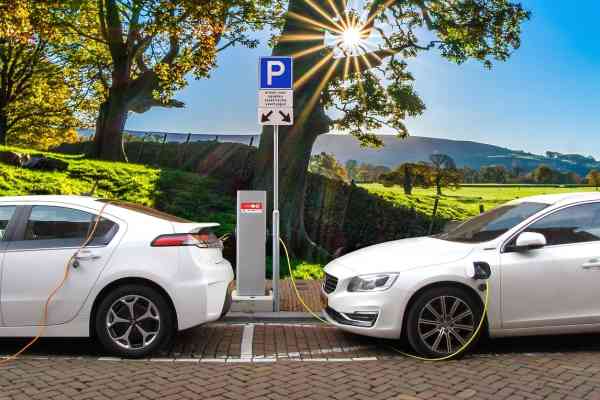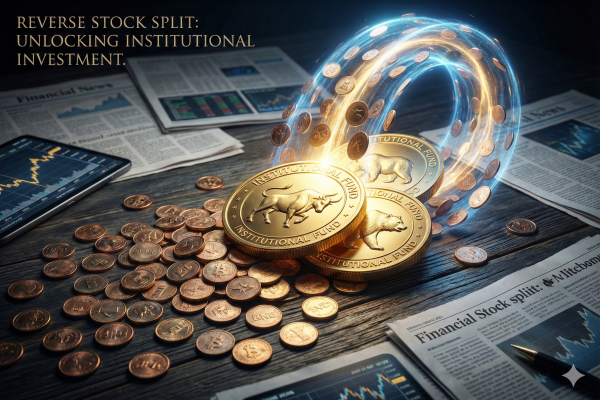August 16th, 2022 | 12:18 CEST
Gamechanger for chip manufacturers: Infineon, BYD, BrainChip, Volkswagen
Computer chips remain in demand. German manufacturer Infineon recently told Handelsblatt that the Company is planning deliveries with a lead time of around two years or more together with customers. As the newspaper estimates, this market situation is favorable for investors and ensures robust margins. We get to the bottom of the chip boom and explain where investors can find opportunities and where risks lie.
time to read: 3 minutes
|
Author:
Nico Popp
ISIN:
INFINEON TECH.AG NA O.N. | DE0006231004 , BYD CO. LTD H YC 1 | CNE100000296 , BRAINCHIP HOLDINGS LTD | AU000000BRN8 , VOLKSWAGEN AG VZO O.N. | DE0007664039
Table of contents:

"[...] We know exactly what we are doing and are implementing what we consider to be a proven technology in an industrially applicable and scalable way. [...]" Uwe Ahrens, Director, Altech Advanced Materials AG
Author
Nico Popp
At home in Southern Germany, the passionate stock exchange expert has been accompanying the capital markets for about twenty years. With a soft spot for smaller companies, he is constantly on the lookout for exciting investment stories.
Tag cloud
Shares cloud
Infineon and BYD: E-car boom makes for good business conditions
Chip manufacturers, such as Infineon, are primarily benefiting from the increased demand from the automotive industry. Automakers, such as the Chinese company BYD, largely made themselves independent of such suppliers years ago and developed their own chips. In the meantime, it seems that the general chip shortage is positively affecting companies in the industry. As manufacturers plan more long-term into the future, chip manufacturers could also better utilize their plants and react to peak loads at an early stage.
Electric cars require many chips, as the electric motors are controlled using semiconductors. As the Handelsblatt newspaper pointed out a few days ago, chips cost USD 500 in classic internal combustion engines, while chips cost around USD 1,000 in electric cars. In charging stations for e-cars, the demand for so-called "power semiconductors" is even greater by a factor of 3. As a result of this e-car boom, margins for Infineon, which is the largest chip supplier for cars, have also increased sharply. Last quarter, the operating margin climbed to a whopping 23.3%.
Even actually self-sufficient carmakers like BYD started buying chips externally some time ago. The reasons for this were speculation about tight capacities in BYD's chip division. However, this did not cause the share price to buckle: Over the course of half a year, BYD's share price has risen by 28%. That is very respectable in a weak overall market. Infineon, on the other hand, could be a laggard: Here, a loss of around 18% has been recorded within six months, although the general conditions for chip manufacturers have improved significantly.
BrainChip: These chips are unique
Away from operational worries and woes, BrainChip's stock is trading briskly these days - within a month it has gone up by as much as 16%. BrainChip relies on a revolutionary chip architecture that is based on the human brain and is said to use extremely little energy. The self-learning chips are, therefore, to be used for many future tasks, such as autonomous driving. In the past, BrainChip has caused a sensation when the technology was tried out in the voice control of Daimler cars, among other things, and produced outstanding results.
A few weeks ago, authorities in Australia, where BrainChip has its home stock exchange, published the twenty largest shareholders of the emerging company. Included were such illustrious names as Citicorp, HSBC, BNP Paribas, Merrill Lynch, and several other asset managers and family offices. Since BrainChip offers convincing solutions around AI and the share price has declined significantly in recent months, investors could make a note of the value. While no dividends beckon here for the foreseeable future, the patented architecture could catch on. At the beginning of the year, the market already played out this scenario once, sending the stock to a level more than 100% above its current price.
Volkswagen: Things are going well - against all odds
VW shareholders cannot expect such price gains. Instead, the Volkswagen share is a quiet stock. The automaker recently made a name for itself with the change in the CEO's chair. Now that new CEO Oliver Blume is still Porsche's boss, observers are wondering how much of the sports car manufacturer's DNA will be in Volkswagen in the future. Oliver Blume, however, does not have many reasons for a new strategy. Most recently, Volkswagen sold more e-cars in China than it has in a long time: In July, it sold around 725,000 vehicles worldwide, only slightly less than a year ago - so inflation and supply chains do not seem to affect VW that much. As a result, VW shares seem to be a safe bet for investors. Although the ordinary and preference shares have recently risen, this is not yet a turnaround.
The boom in electric mobility is boosting the shares of growth companies and industry heavyweights. The only difference is in intensity. Smaller companies, in particular, still struggling for market share or just getting their products ready for the market, could have great potential in the medium term. Examples include BYD, which has already jumped on, and AI chip pioneer BrainChip. The downside is a higher risk. Those who shy away from this are better oriented toward Infineon and Volkswagen.
Conflict of interest
Pursuant to §85 of the German Securities Trading Act (WpHG), we point out that Apaton Finance GmbH as well as partners, authors or employees of Apaton Finance GmbH (hereinafter referred to as "Relevant Persons") may hold shares or other financial instruments of the aforementioned companies in the future or may bet on rising or falling prices and thus a conflict of interest may arise in the future. The Relevant Persons reserve the right to buy or sell shares or other financial instruments of the Company at any time (hereinafter each a "Transaction"). Transactions may, under certain circumstances, influence the respective price of the shares or other financial instruments of the Company.
In addition, Apaton Finance GmbH is active in the context of the preparation and publication of the reporting in paid contractual relationships.
For this reason, there is a concrete conflict of interest.
The above information on existing conflicts of interest applies to all types and forms of publication used by Apaton Finance GmbH for publications on companies.
Risk notice
Apaton Finance GmbH offers editors, agencies and companies the opportunity to publish commentaries, interviews, summaries, news and the like on news.financial. These contents are exclusively for the information of the readers and do not represent any call to action or recommendations, neither explicitly nor implicitly they are to be understood as an assurance of possible price developments. The contents do not replace individual expert investment advice and do not constitute an offer to sell the discussed share(s) or other financial instruments, nor an invitation to buy or sell such.
The content is expressly not a financial analysis, but a journalistic or advertising text. Readers or users who make investment decisions or carry out transactions on the basis of the information provided here do so entirely at their own risk. No contractual relationship is established between Apaton Finance GmbH and its readers or the users of its offers, as our information only refers to the company and not to the investment decision of the reader or user.
The acquisition of financial instruments involves high risks, which can lead to the total loss of the invested capital. The information published by Apaton Finance GmbH and its authors is based on careful research. Nevertheless, no liability is assumed for financial losses or a content-related guarantee for the topicality, correctness, appropriateness and completeness of the content provided here. Please also note our Terms of use.




